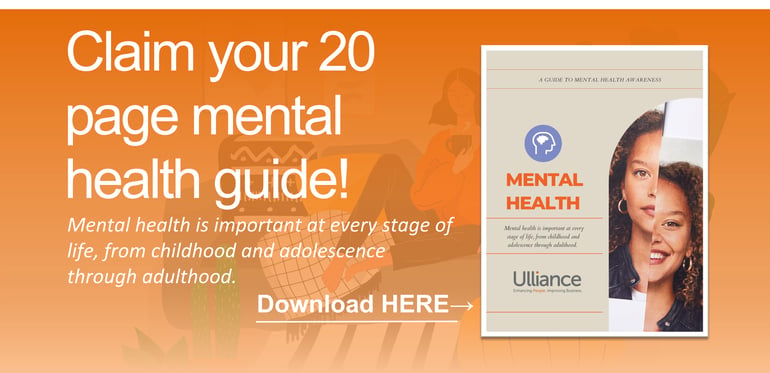Increasing your well-being is simple. There are “how-to” guides everywhere to teach you “life-happiness” skills. And while it may be simple, it isn’t always easy. You have to measure out what ingredients of well-being are most important to you. Someone else’s version of a happy life may make you downright miserable.
Well-being isn’t a single “thing.” It is a multifaceted state of being that leads to developing one’s full potential. It consists of a 6-part scale: self-acceptance, personal growth, purpose in life, positive relations with others, environmental mastery, and autonomy. The higher you score, the better your state of well-being.
The scale was created by Professor Carol Ryff long before well-being was a trending topic. Motivated by Aristotle’s Nicomachean Ethics, where the goal of life isn’t feeling good but is instead about living virtuously, she created the first systemic model of Psychological Well-Being.
Carol Ryff’s Secret Sauce - The Six Criteria of Well-Being
Life in this world is different from what we lived four years ago. Our lives have been disrupted, assumptions challenged, and our journey confused like first-year college students on day one at a University.
As we struggle with this new world, its rules and learn a different way forward, we can leave behind practices that didn’t serve us well and focus on the blended relationships we have with our mind, body and soul to bring about a sense of wholeness, a greater sense of well-being.
Self-realization, or the ability to find meaning in an absurd world, is tied to Carol Ryff’s six categories of well-being.
Which are as follows:
1. Self-Acceptance – Accepting yourself means recognizing and accepting your positive traits and negative attributes. You can acknowledge your unique quirks and all aspects of your personality with a positive attitude, and it also means being at peace and comfortable with your past.
The level of self-acceptance you feel dramatically influences the level of satisfaction in your life. If you can’t accept that you are an individual human with differences that make you special, you cannot find well-being
2. Personal Growth – To grow as a person means you search for opportunities to learn about yourself and continually strive to develop your full potential. It is improving your self-knowledge, strengthening your weaknesses and working to improve negative behaviors.
Lack of personal growth contributes to feelings of boredom, disinterest and unhappiness. If you’ve been wondering, “what’s the point?” about your efforts or feel like you don’t have the skills to cope with life’s challenges, you cannot fully reach a state of well-being.
3. Life Purpose – Do you believe your life has a purpose? How you view your purpose in life is important because your beliefs give life meaning. Setting goals and being objective are actions you can take based on what you believe your purpose to be.
If you lack a sense of purpose or meaning in your life, you will also lack a sense of direction and not know where to set a goal or how to meet it. If there is no goal to strive for in life, the question goes back to “what is the purpose of life”?
4. Autonomy - Autonomy means you maintain your independence and stand by your convictions. It’s knowing you can make your own decisions even when others don’t agree. Part of this is knowing how to assess yourself against personal standards instead of the expectation of others.
Scoring low here means you want to please others. You will try to meet the expectations of others regardless of your personal beliefs, and you are in a constant state of worry because you don’t know if you can meet those expectations. Be true to yourself.
5. Positive Relationships – This means you don’t live your life acting like you are best buds with the Grinch. Your relationships are warm and satisfying and trusting, and you genuinely care about the welfare of others. You are capable of strong empathy, affection and intimacy.
Symptoms of weak relations are feeling like you are alone in a crowded room. You may have a few trusting and close relationships with other people yet still find it challenging to be open and warm.
6. Environmental Mastery – You feel competent in managing your environment and can choose activities that are suitable to your personal needs. You create contexts for your environment and have an array of outside activities.
When you cannot manage your everyday affairs and feel unable to make changes or improve your surrounding environment, you lack a sense of control over your external world.
These six pieces of the well-being theory provide a framework for the skills you can practice to obtain a sense of well-being. You can find more information and guidebooks to assist you through each category, and some categories you may have to visit a few times as you learn about yourself.
Here is a quick reference note on things you can do to improve your well-being
- Connect: Build connections with people around you.
- Be active: Boost your energy and mood by doing something active.
- Take notice: Be curious about the world and savor the moment.
- Keep learning: Learn something new to boost your confidence and have fun.
- Give: Do something nice for someone
When you partner with Ulliance, our Life Advisor Consultants are always just a phone call away to teach ways to enhance your work/life balance and increase your happiness. The Ulliance Life Advisor Employee Assistance Program can help employees and employers come closer to a state of total well-being.
Investing in the right EAP or Wellness Program to support your employees will help them and help you. Visit www.ulliance.com, or call 866-648-8326.
The Ulliance Employee Assistance Program can address the
following issues:
• Stress about work or job performance
• Crisis in the workplace
• Conflict resolution at work or in one’s personal life
• Marital or relationship problems
• Child or elder care concerns
• Financial worries
• Mental health problems
• Alcohol/substance abuse
• Grief
• Interpersonal conflicts
• AND MORE!
References
ADMIN. (2018, July 20). What does wellbeing actually mean? Retrieved from Wellbeing People: https://www.wellbeingpeople.com/2018/07/20/what-does-wellbeing-actually-mean/
ADMIN. (2019, November 6). 5 Steps to Mentao Wellbeing. Retrieved from NHS: https://www.nhs.uk/mental-health/self-help/guides-tools-and-activities/five-steps-to-mental-wellbeing/
Carol Ryff’s Model of Psychological Well-Being. (n.d.). Retrieved from The Corner of Excellence: https://www.thecornerofexcellence.com/en/carol-ryff-model-of-psychological-well-being/
Carol Ryff’s Model of Psychological Well-being The Six Criteria of Well-Being. (n.d.). Retrieved from Living Meanings: https://livingmeanings.com/six-criteria-well-ryffs-multidimensional-model/
Celestine, N. (2022, January 26). The Ryff Scales of Psychological Wellbeing: Your How-To Guide. Retrieved from PositivePsychology.com: https://positivepsychology.com/ryff-scale-psychological-wellbeing/
Tchiki Davis, P. (2019, January 2). What Is Well-Being? Definition, Types, and Well-Being Skills. Retrieved from Want to grow your well-being? Here are the skills you need.: https://www.psychologytoday.com/us/blog/click-here-happiness/201901/what-is-well-being-definition-types-and-well-being-skills


